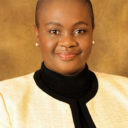Globally, we are facing multiple and compounding crises. Whether it is the devastating impacts of climate change, a seemingly never-ending pandemic, or armed conflicts from Ethiopia to Ukraine, it can feel like the crises never stop. While there has long been a divide between human rights and humanitarian funders, this sense of constant crisis combined with lessons from the Covid-19 pandemic has helped the philanthropic sector recognize that it must strengthen its approach to crisis infrastructure and management. Together, as funders and facilitators of social movements, we are in full flight, moving into and shaping the future of crisis response mechanisms!
With more than 20 years of rapid response grantmaking under our belt at Urgent Action Fund-Africa, we have learned a thing or two about crisis response. One truth has become constant: money alone is not enough! For any crisis response to be effective, we must center indigenous people’s wisdom, analysis, and solutions. Here are some of the factors that have withstood the test of time for us at UAF-Africa, bolstering our rapid and sometimes steady navigation of crisis moments with an ethical and feminist moral compass.
Local expertise ready to do rapid assessments. When a crisis strikes, we need feminist activists with multi-facetted expertise able to rapidly conduct needs assessments. UAF-Africa’s network of more than 100 advisors in 54 countries provides us with immediate intelligence, especially on the needs of structurally marginalized communities like womn[1] with disabilities, womn refugees, womn living in poverty, female sex workers, and LBTQIA+ people. Moreover, given our virtual work structure with anchor offices in Kenya and Zimbabwe and the rest of our team spread across 15 African countries, if something happens in Southern Africa, we can jump on a flight and be in Mozambique or Malawi within 2 hours. Africa is home to one-third of the world’s languages. Our collective staff speak 46 African dialects. Having linguistic infrastructure allows us to facilitate critical conversations with the right people when it counts the most. Our virtual structure, feminist values, diverse socio-cultural backgrounds, and multi-disciplinary team facilitate how we show up in agile, dynamic, and grounded ways.
Trusted networks. Over two decades, we have built trust and solidarity with a network of nearly 4,000 grantee partners. When Ebola struck West Africa in 2014 or when Mount Nyiragongo volcano erupted in DRC in 2021, UAF-Africa was one of the first funders to provide life-saving resources to communities. This was only possible because of the meaningful relationships we had nurtured through physical and online outreaches and creation of peer-to-peer networking spaces, linking our partners to each other, to relevant information and other grant-making mechanisms. Our experience has shown us that the importance of trust-building cannot be overstated. If people do not trust you, they will not open up to you and tell you what you need to know. You cannot buy social currency with money!
Equitable partnerships. Oftentimes, crises tempt funders to respond quickly without pausing to think with local groups about what is truly needed. This is not only unjust but also unwise. When we respect the knowledge of local groups and trust their solutions, they change their conditions more quickly and durably than if we were to take the lead. In January 2021, despite growing cases of Covid-19 in Zimbabwe prisons, womn’s basic health, sexual and reproductive health rights, and services were not being adequately prioritised, nor were they on the advocacy agenda of mainstream womn’s rights organizations in the country. UAF-Africa’s support enabled a local group to amplify the voices of female inmates in Zimbabwe through documentation of their stories and policy interventions. The group also stepped in to provide sanitary wear, sanitizers, and face masks.
For the Urgent Action Sister Funds, practicing trust and reshaping accountability is also a core principle of feminist philanthropy. We listen out for the voices that are not being heard, and we trust and follow their lead. We challenge the unequal power of traditional donor relationships, which are detrimental to responding to crises and to building a just world.
Protection and care. Safeguarding the security and wellbeing of activists must be integrated into crisis response. During the pandemic, we saw state-sanctioned surveillance and violence against womn’s rights activists emerge in heightened ways. Drawing on our experience supporting activists in conflict, post-conflict, and unstable political situations, we invested in co-creating unconventional spaces, such as virtual Ubuntu gatherings, for activists to connect, share their challenges, triumphs, and fears, and collectively heal through art, poetry, and dance.
As we look ahead to the next 20 years, we know that the crises we face will only multiply. We call on our peers in philanthropy to integrate the lessons of the last few years. The challenges may be daunting, but when we trust in and care for the people we serve, we cannot go wrong.
Ndanatsei Bofu-Tawamba is the CEO of Urgent Action Fund – Africa.
This blog is part of a series by the Urgent Action Funds, unpacking how they practice their recently launched Sisterhood Feminist Principles of Philanthropy in their day-to-day work. The Urgent Action Funds are a global consortium of feminist funds that provide rapid and responsive support for women and LBTQI+ human rights defenders in moments of need, sustaining feminist activism by supporting the resistance and resilience of frontline defenders.
Editor’s note 21 October 2022: The fifth paragraph on equitable partnerships was updated to reflect some edits by the author.






Comments (0)